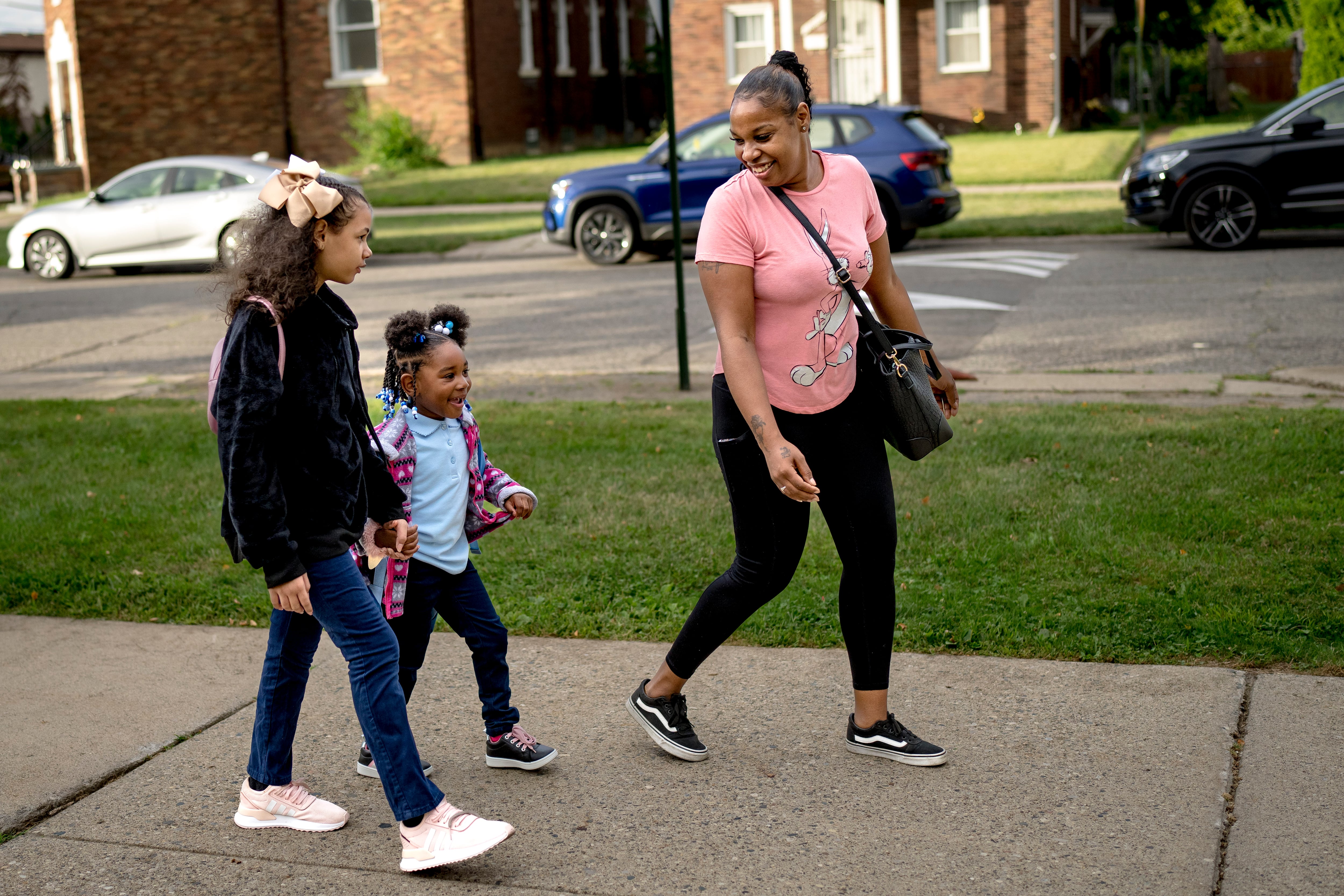Detroit school district officials said they observed promising trends in attendance rates and enrollment based on preliminary data for the first few weeks of the new school year.
But they didn’t share the underlying attendance data, and the enrollment numbers could look different come Oct. 5, when the Detroit Public Schools Community District will formally count the number of students for per-pupil funding purposes.
Roughly 52,300 students were enrolled in the district as of Monday, Superintendent Nikolai Vitti said at a school board meeting Tuesday. That’s actually down from about 53,000 at this time last year.
But Vitti pointed to another metric as a sign of progress. Of the 52,300 enrollees, 90%, or just over 47,000, have attended school for at least one day; a year earlier, that figure was 43,500, or about 82%. K-2 enrollment was also trending higher, Vitti said.
Improving student enrollment has been a main priority for officials in DPSCD and districts across Michigan, especially in recent years given the pandemic’s impact. DPSCD has reported that roughly 3,000 students have left the district since spring of 2020. At the end of the 2021-22 school year, the total student count was roughly 48,700.
District officials also see reducing absenteeism in the district as critical to recovering from the academic setbacks caused by remote learning and other disruptions during the pandemic.
DPSCD did not provide districtwide average daily student attendance rates during Tuesday’s board meeting, but said they are trending higher than last year. Chalkbeat has requested records for this year’s first-day attendance, as well as preliminary attendance data for the first weeks of school.
In 2021-22, the district’s average daily attendance rate was 75%, up from 70% the year before.
As part of the district’s plan to boost attendance, the school year started in Detroit on Aug. 29, a week earlier than usual, meaning the year will end a week earlier, too. Vitti argued that the new schedule would help improve sagging attendance rates in June.
Districts across the state have been struggling with declining attendance rates since the pandemic began. The rate of student attendance in Michigan schools declined to 89% in the 2021-22 school year, from 93% in the 2019-20 school year. The statewide rate of chronic absenteeism has grown to 38% last year, compared with 20% prior to the pandemic. Students are considered chronically absent if they miss 10% or more of the school year.
“As we are beginning the 2022-23 school year, I encourage parents and districts to work together to focus on student attendance so that they can make the best use of the time that is available to them for student instruction,” state Superintendent Michael Rice said in a statement Tuesday.
In Detroit, high rates of chronic absenteeism have hampered efforts to recover from the pandemic. In spite of improved daily attendance rates, the rate of chronic absenteeism rose to 79% in 2021-22, Vitti said, citing the district’s latest numbers, from 70% in 2020-21. (Vitti had earlier pegged the 2021-22 figure at 77%)
“I think chronic absenteeism was frankly the No. 1 factor when we look at why we saw a drop in proficiency,” Vitti said, referring to student performance on Michigan’s standardized test program, the M-STEP.
In the long term, Vitti envisions using philanthropic money to ensure that every neighborhood has a school equipped with resources such as mental health support, dental and medical services, and financial support, in order to reduce barriers for students to come to school.
But Vitti said the district’s approach to addressing absenteeism next year may look different depending on what district initiatives the board is willing to prioritize.
“I don’t think we’ll be able to afford an attendance agent at every school,” he said. Instead, he suggested, the district might consider placing agents only at “schools with the highest level of chronic absenteeism,” and use the district’s central office staff to address the issue citywide.
Other budget priorities, he added, such as increasing staff salaries or hiring full-time academic interventionists to provide small group support to students, could outweigh the need for an attendance agent in every building.
“The hardest part is what are we going to do less of, because the budget is not going to be able to sustain all of this,” Vitti siad.
Sherry Gay-Dagnogo, a member of the board’s finance committee, suggested the district might use its public safety department to address attendance issues, similar to the role of a truancy officer, a person employed by a school district to investigate student absenteeism.
“This is a public safety issue, because if kids are not in school, they certainly are not safe in most instances,” Gay-Dagnogo said.
Vitti said he was hesitant to use the district’s officers to fight truancy, but could see partnering with local law enforcement agencies, as well as the Wayne County Prosecutor’s Office, which in past years had more resources to address student absenteeism.
Some community members were opposed to the idea of cutting attendance agents. District parent and advocate Melissa Redman said she was wary of using truancy officers to discipline parents or families, and urged officials to focus on causes of absenteeism.
“If we want to stop chronic absenteeism, let’s think of another solution while we’re moving other things out of the way, a solution to make sure our kids do get in the building,” Redman said. “Because some of our parents don’t want to take their kids to their neighborhood school up the street, because there’s too much stuff happening there, and they have to come all the way from the east side to a better setting or school.”
Ethan Bakuli is a reporter for Chalkbeat Detroit covering Detroit Public Schools Community District. Contact Ethan at ebakuli@chalkbeat.org.








